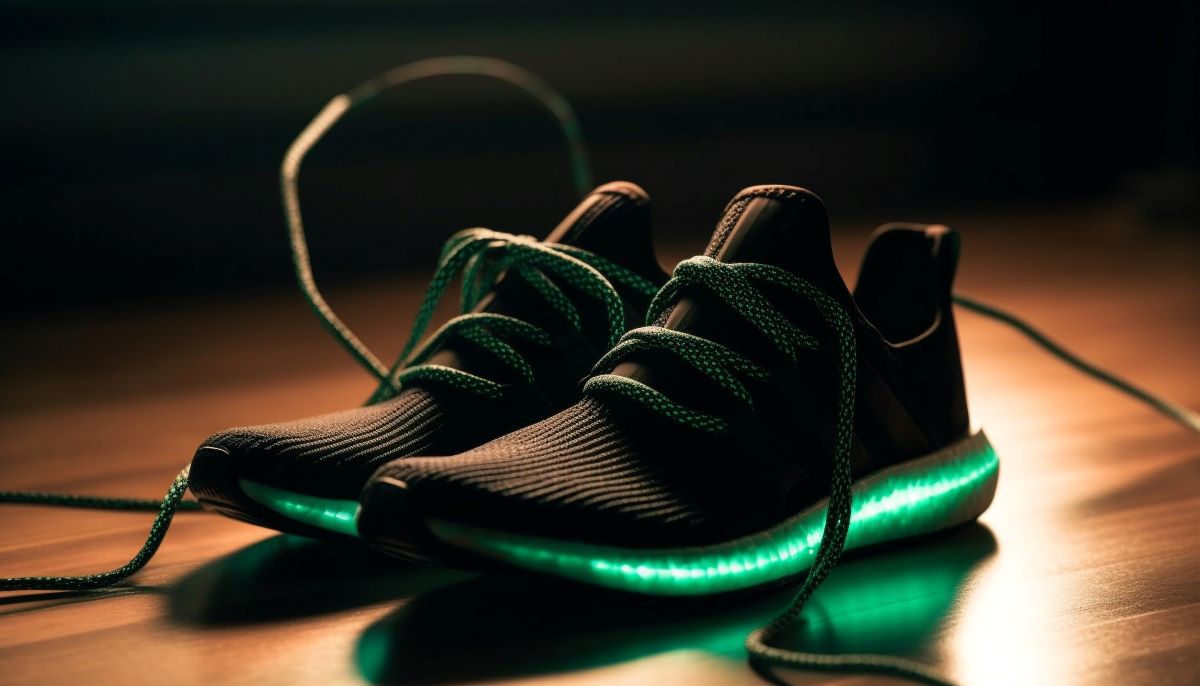In the world we live in today, one of the most common things that people pay is to fulfill their desire and their taste in branded products like shoes. One common term shoe lovers use is ‘shoe culture,’ which means to show their love for different types of shoes, functional or luxurious, by collecting them.
The other word shoe lovers use today is ‘Rep,’ which is used for expressing different sayings in the shoe culture. This article will discuss this term in more detail, ‘Rep’ can denote replicas of branded footwear or as an expression that a particular shoe is well-liked by the shoe community..
Quick Access
Understanding Shoe Lingo
Definition and importance of shoe lingo
When we are around shoe lovers, we often hear specific terms that are quite unique to normal people. They use this shoe lingo to offer knowledge and communicate better with others in the shoe community. Shoe lingo is essential as it creates a sense of community among shoe lovers, leading to a more engaging discussion.
Commonly used terms in the shoe culture.
- Sneakers vs. Shoes: Shoe lovers are of two types one that buys and prefers all types of shoes like sports, formal, casual, and vice versa. And there is another type of shoe lover who likes sneakers. This category includes shoes that are more athletic or sports shoes.
- OG vs. Retro: When a brand first releases a footwear product, it is called ‘OG.,’ which means the original shoes. Whereas when a company re-releases a footwear model that was popular but was discontinued due to a shortage of supply or any such reason is termed as ‘retro.’
- Collaborations and Colorways: ‘Collaborations’ means partnerships between two shoe companies or influencers to release a limited edition product or a classic collection. ‘Colorways,’ on the other side, implies a color pattern used by a shoe model that made it a hit in the market.
- Limited Editions and General Release: A shoe is labeled as a limited edition or a general release based on its availability. Limited edition footwear is produced in small quantities, making them more exclusive and luxurious, while a general release is widely available to customers.
Exploring the Counterfeit Market
Overview of the Counterfeit Shoe Market
Every person desires to own a branded shoe; however, many cannot afford it. Due to this, many manufacturers or retailers sell counterfeit products to such people at much less cost. This market, especially the shoe market, has become an industry worth of million dollars.
Potential Risks and Consequences of Purchasing Replica Shoes
Shoe replicas are a better alternative for shoe lovers who cannot afford such expensive shoes. However, these shoe replicas are not made with the same raw material or method as the original product. These are often made with cheap textiles or colors with harmful chemicals that can harm your skin and are usually uncomfortable to wear or are less durable. Also, customers can become a victim of fraud when sellers of this replica accept the total amount without delivering the product.
How to differentiate Between Authentic and Replica Shoes.
Following are some of the ways you can differentiate between an authentic and a replica shoe:
- Checking the details and quality: One fundamental mistake that replica shoes make is that they happen to misplace the logo, or the design can be slightly different. In authentic brands, logos are always placed in the center or at a particular site with the correct brand label.
- Verifying authorized retailers: Always buy from well-known retailers or the shoe brand’s website. Always avoid buying shoes from third-party sellers who claim to have limited edition shoes at a much-discounted price. These are likely to be replicas.
- Authenticating through official sources: When buying shoes from a retailer or any website, make sure to check the serial number of the product on the brand’s website. Every shoe has an authentic serial number or QR code that can verify its authenticity from the brand’s website.
Reputable Shoe Replicas: A Viable Alternative
Introduction to Reputable Manufacturers of Shoe Replicas
In today’s advanced market, every product has its cheap and costly version manufactured by different companies. Shoe manufacturers have also advanced to the point where, in the market, a person can find a variety of shoes at different costs. However, as a buyer, one always desires branded things. So manufacturers have created copies or replicas of their best products to sell them at cheaper prices to buyers.
Benefits and Drawbacks of Purchasing Shoe Replicas
People always buy shoes they think will suit them and also consider brands due to the guarantee that they will last longer than any other local shoe replica. So, the buyers who dont have that much of a budget but want to go for a brand-manufactured shoe usually buy replicas because a replica is the exact copy of that original product. Buyers get satisfied and enjoy the benefits like accessibility, long-lasting, and branded.
However, it is all a business strategy to sell the products to the buyers and also promote the original product. So it will have drawbacks to both side parties, like the company is using original materials which were used to create the original product and selling it at a cheaper price. That is hard for a company, so usually, big shoe manufacturers dont go and create replicas of their products. Also, creating a replica of a product continues to result in mass production, and quality can get degraded over time.
Ethical Considerations When Buying Replica Shoes
When a buyer is window shopping to buy a branded shoe for himself or a replica of a branded shoe. They should be careful when buying the replica to avoid any bad experience. By bad experience, we mean that the buyer should avoid unauthorized sellers because after buying the shoe, he/she can find that the shoe doesn’t last, and there can be a chance that the shoe cannot be returnable for any refund or replacement. Also, such replicas can damage brand manufacturers, so there is a chance that the company will shut down the whole manufacturing of that footwear model, so we should be careful and ethical.
Tips for Finding Reliable Sources of Shoe Replicas
- Do your research: Before purchasing a shoe, the buyer should know about the seller, and he should be well aware of the product and the brand manufacturer. If he is not, then he should do a search on the seller in his own way.
- There can be a red flag: Buyers should always consider the authenticity of the product and brand they will be buying from. So, buyers should always research about the shop and the manufacturer beforehand.
- Always buy from authorized shops: Whenever you are planning to buy a shoe, it doesn’t matter if it’s a replica or an original product of that brand. Visit the legal seller that will save you from getting scammed.
- Payment: Whenever you’re paying for a product, ask the seller beforehand to hand over the bill so that you can be sure about what he is charging you for. Also, if you are going for an online payment, double-check the account you are paying.
‘Rep’ as an Abbreviation
Explanation of ‘Rep’ as an Abbreviation for ‘Reputation’
Shoes are a thing people wear for fashion and to show their classes. A time has come when buying a shoe and wearing it is like a culture itself. So the things that go viral always get an abbreviation, for ‘Rep’ is the abbreviation of reputation among shoe enthusiasts or collectors.
In shoe culture, individuals often refer to a shoe as maintaining a good rep or bad rep, which represents a shoe’s popularity or quality. Usually, holding a good rep indicates that the shoe is well-appreciated by other people. While a terrible rep is the opposite of good, the shoe has an inferior popularity or a bad reputation for being of poor standard.
Importance of Reputation in Shoe Culture
Shoe creation, shoe buying, and shoe selling have their own history. As time passed, many reputable shoe manufacturer brands emerged, and shoe lovers often chose to wear their creations. Why? Because they have a good rep in the market due to individuals being attracted to their manufactured products.
Shoe manufacturers with good reps are now one of the prestigious and desirable branded things people want to wear daily. They think wearing their shoe can uplift their personality and show how well-maintained they are also, there is a point that a branded product stay long-lasting and give you the confidence to stand out.
How ‘Rep’ can also refer to ‘representation in Shoes
- Different shoe brands representing various styles or subcultures: In the footwear market, different manufacturers have introduced various kinds of footwear. Those can be sandals, sleepers, or a shoe with lace or non-lace. However, what makes them special is the style of the subculture that the brands represent. If we look into brands like Nike and Adidas, both are prestigious shoe manufacturers. Their target audience and the manufactured products are the same, but what makes them different is the uncommon style they have. Nike has a more athletic style, and Adidas has a more hip-hop style, which makes the audience bite at a price much higher than the replica.
- The way individuals express themselves through different shoe styles: Individuals nowadays think wearing a reputable and prestigious manufacturer’s shoe can represent them. For example, a sportsman chooses a sports shoe which makes him look like a proper athletic person. This also pushes him in his day-to-day activities to become more ambitious towards his sportsmanship. Also, a professional who does office daily, whenever he considers formal shoes from a branded manufacturer, he feels complete wearing it and comfortable while working.
Conclusion
In this article, a question is being given. What does rep mean in shoe culture?- the complicated delicacy of shoe lingo is important for every shoe enthusiast, including the various definitions of ‘Rep.’ The overall article emphasizes the different interpretations of ‘Rep,’ from replicas to reputation and representation. It stresses the necessity to make knowledgeable decisions, thus encouraging buyers to choose the best between authentic products and replicas.

